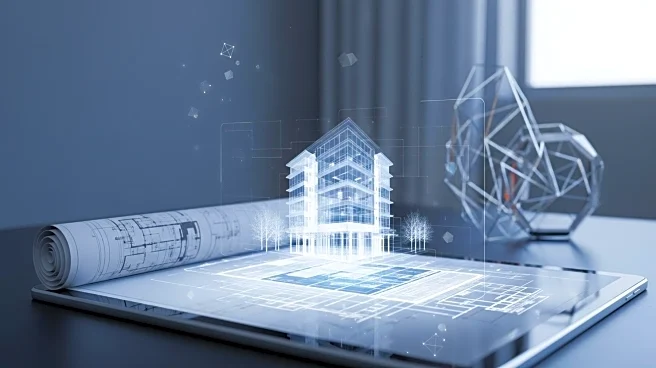What's Happening?
Autodesk is introducing advanced AI tools to transform the architecture, engineering, and construction (AEC) industry. At the AU 2025 conference, Autodesk showcased its AI capabilities, which include automatic updates to building facades and interior layouts, and the ability to visualize inside walls without demolition. These tools are designed to streamline the process of repurposing existing buildings, significantly reducing the time and manpower required. Autodesk's AI technology is being piloted by firms like Arcadis, demonstrating its potential to automate tasks that previously took days to complete, now achievable in hours by a single person.
Why It's Important?
The integration of AI tools by Autodesk represents a significant shift in the AEC industry, promising increased efficiency and reduced costs. By automating complex tasks and providing real-time insights, these tools can enhance collaboration and decision-making across project stages. This development is likely to benefit firms by minimizing data management challenges and improving project execution. The ability to repurpose buildings without extensive demolition could lead to more sustainable practices, reducing waste and environmental impact. Stakeholders in the construction and design sectors stand to gain from these innovations, potentially leading to faster project completions and improved profitability.
What's Next?
As Autodesk continues to expand its AI capabilities, further integration into core products like Revit, AutoCAD, and Civil 3D is expected. This expansion could lead to broader adoption across the industry, with more firms leveraging AI for various aspects of building design and construction. The ongoing collaboration with firms like Arcadis suggests that real-world applications and feedback will drive future enhancements. Stakeholders may anticipate increased competition as firms adopt these technologies, potentially leading to new standards in building design and project management.
Beyond the Headlines
The use of AI in building design raises questions about the future role of human expertise in the industry. While AI can automate repetitive tasks, the need for creative and strategic input remains crucial. Ethical considerations regarding data privacy and security in AI-driven processes may also emerge as these tools become more prevalent. Long-term, the shift towards AI-driven design could influence educational and professional training in the AEC sector, emphasizing the importance of digital literacy and AI proficiency.









